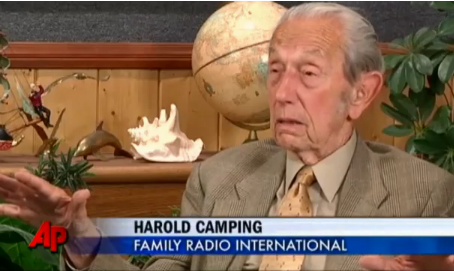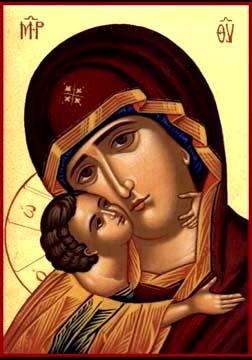On Saturday, Harold Camping proved himself to be a false prophet when no rapture materialized…

Three days before the supposed event, I wrote the following:
When the predictions of such groups fail to come true and Jesus inconveniently decides not to turn up, excuses are usually given e.g. “Jesus did return, but did so invisibly!”. I’m guessing that probably the same thing will happen with Christian Family Radio on May 22nd.
I just read the following:
“Radio evangelist Harold Camping said in a special broadcast Monday night on his radio program Open Forum that his predicted May 21, 2011 Rapture was ‘an invisible judgment day’ that he has come to understand as a spiritual, rather than physical event.”

Straight out of the Jehovah Witness play book! Camping’s prophetic credentials seem to be shot, but mine are looking pretty good, hey? 🙂





